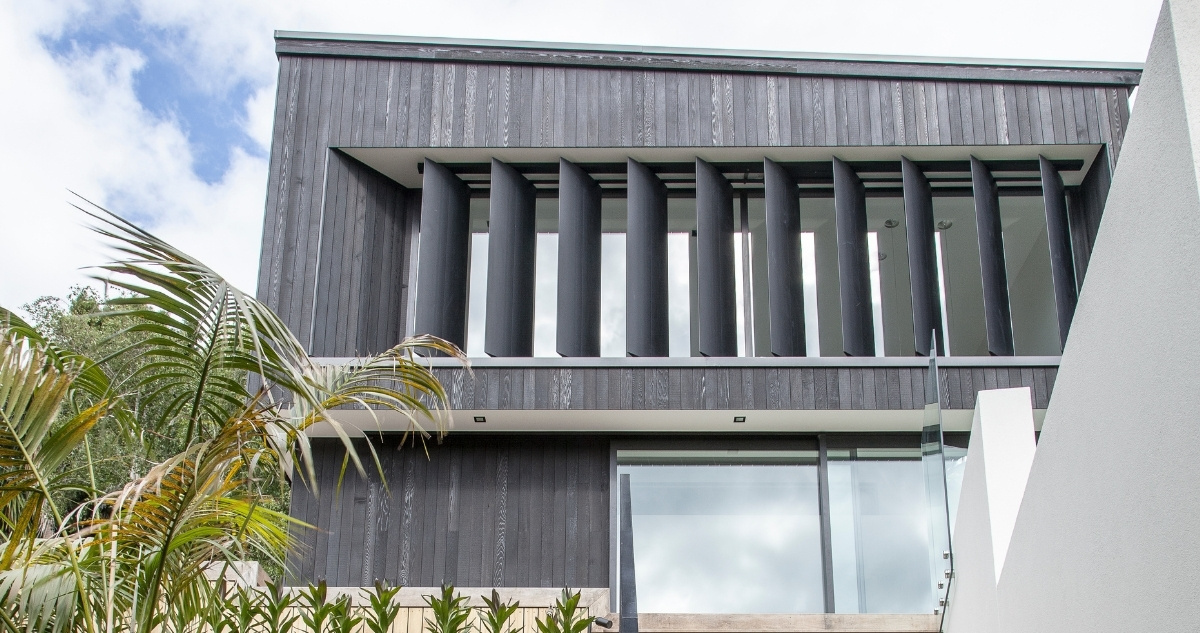Building automation and facade design
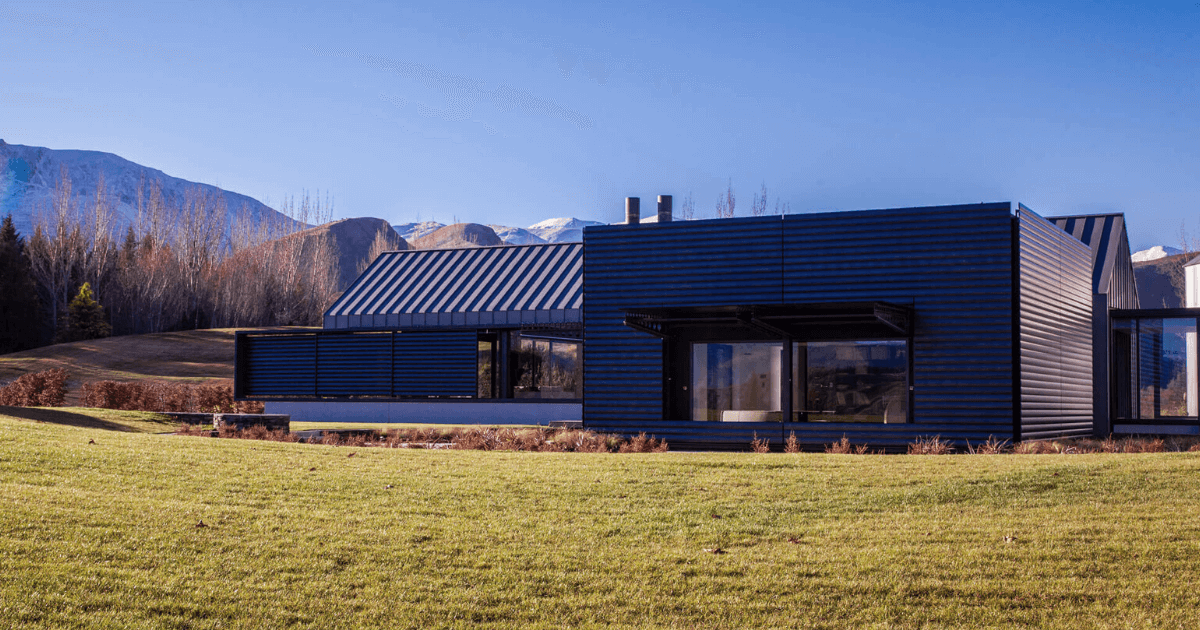
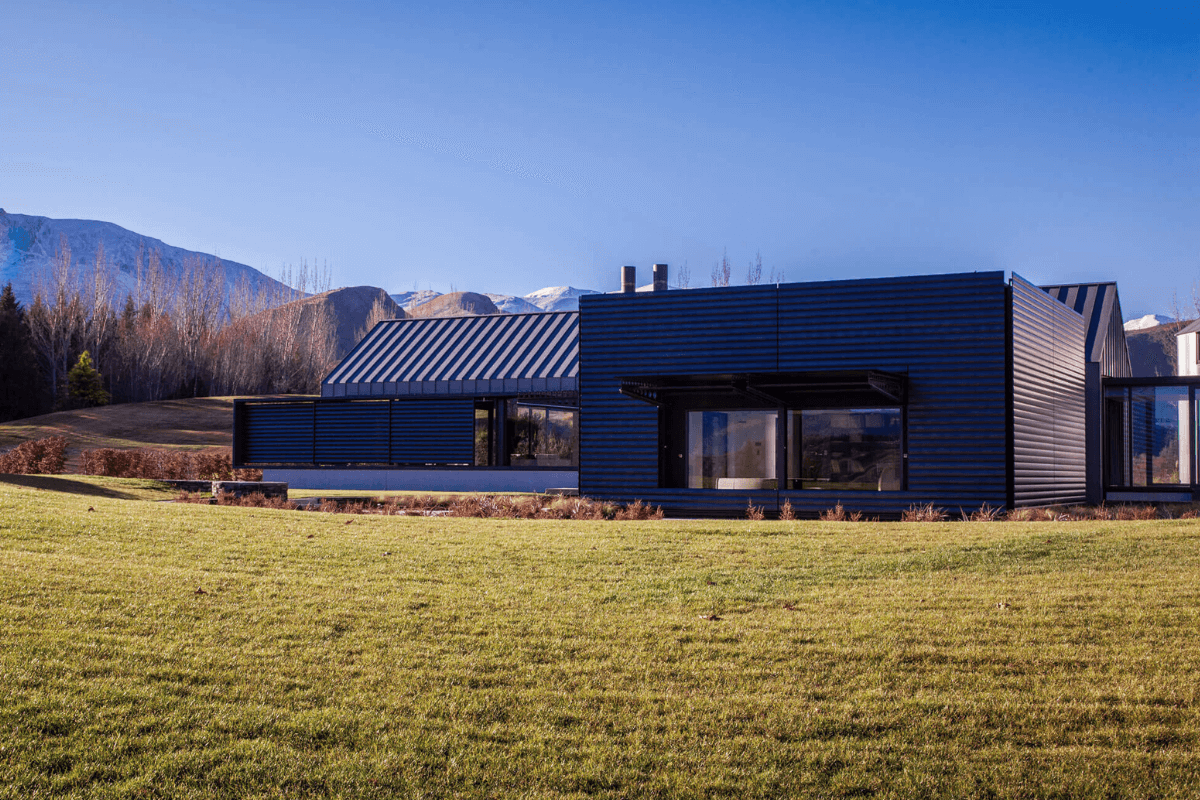
If you are looking for a way to enhance your next architectural project, integrating facade automation may be the solution you are looking for.
Facade automation is a multi-functional tool used to improve energy efficiency as well as the building’s aesthetic profile. It utilises modern technology to control and manipulate exterior elements such as windows, doors, blinds, shutters, and louvres, providing increased control over the internal climate and energy use.
In this article, we present the most effective solutions that cater to both functional and aesthetic needs. Whether you are seeking a practical solution or one that enhances design, we've got you covered.
What is facade automation?
Facade automation is a type of smart home design, engineered to give homeowners greater control over their home's internal climate and energy consumption. It refers to the use of modern technology to control and manipulate the elements of a building's facade system. This includes, but is not limited to:
- Windows
- Doors
- Blinds
- Shutters
- Louvres
Facade automation systems are designed to increase the functionality, comfort, and security of a building, while also improving energy efficiency and reducing maintenance costs.
The benefits of building facade automation
By integrating automation into the facade of a building, homeowners can enjoy several key advantages.
Comfort
By using automation to adjust a building’s exterior features, homeowners can control how much sunlight and airflow they allow inside. This makes it easier to manage internal temperatures and comfort levels.
Energy efficiency
Automated louvres, blinds, shutters, and window shades can help to regulate the amount of natural light that enters the building, reducing the need for artificial lighting and air conditioning. Over time, this can lead to significant energy savings.
Aesthetic value
While the primary function of facade automation is to provide functionality and convenience, many facade solutions also add architectural interest. For example, louvre blades, shutters, and bifold screens are all effective shade control products but also create a dynamic layer enhancing the building’s profile.
Types of facade automation
Depending on the project scope and shade control required, consider one or more of the following facade automation products:
- Motorised bi-fold screens
- Motorised awnings
- Motorised blinds and shutters
- Motorised louvre blades
- Motorised louvre roofs
Motorised bi-fold screens
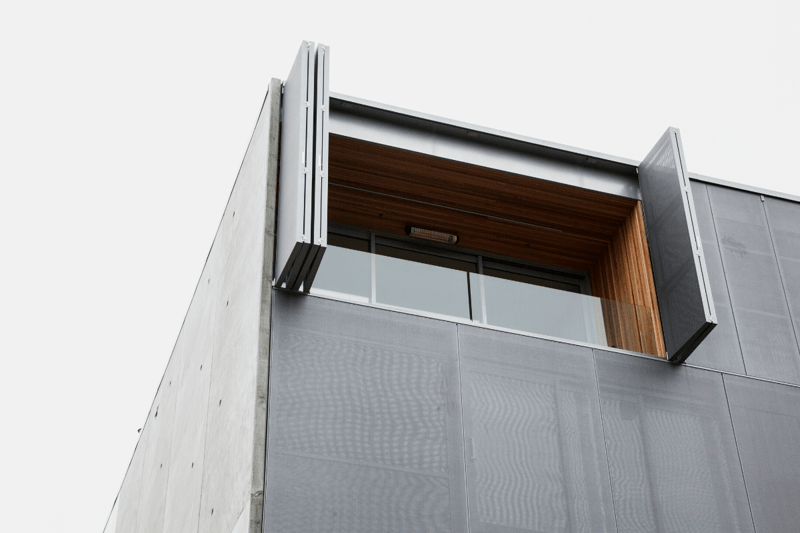
Designed with an accordion style fold, exterior bi-fold screens or shutters are a popular option for those who want to create a seamless flow from indoors to an outdoor living space.
Bi-fold screens are custom designed to fit window or door specifications, providing privacy and shade as required. These screens are typically made from high-quality materials that are durable, weather-resistant, and long-lasting, such as timber cladding or aluminium.
By adding a motor, bi-fold screens can be automated to open and close according to the time of day or controlled by a remote or wall-mounted switch. This makes it easy for homeowners to adjust the screens based on their needs, whether they want to let in more natural light, create a more open feel, or keep insects out.
Motorised awnings
For those looking for shelter in outdoor living spaces, a motorised awning is a convenient and often more affordable solution. These awnings are designed to be retractable, allowing homeowners to adjust the amount of shade and sunlight they receive with the push of a button.
Motorised awnings are typically made from materials like acrylic, polyester, or canvas, which is designed to withstand harsh weather conditions. They are usually operated by a remote control or a wall-mounted switch, making it easy to adjust the awning from the comfort of your home.
However, for a more durable option that also provides architectural value, consider a more permanent louvre roof.
Motorised blinds and shutters
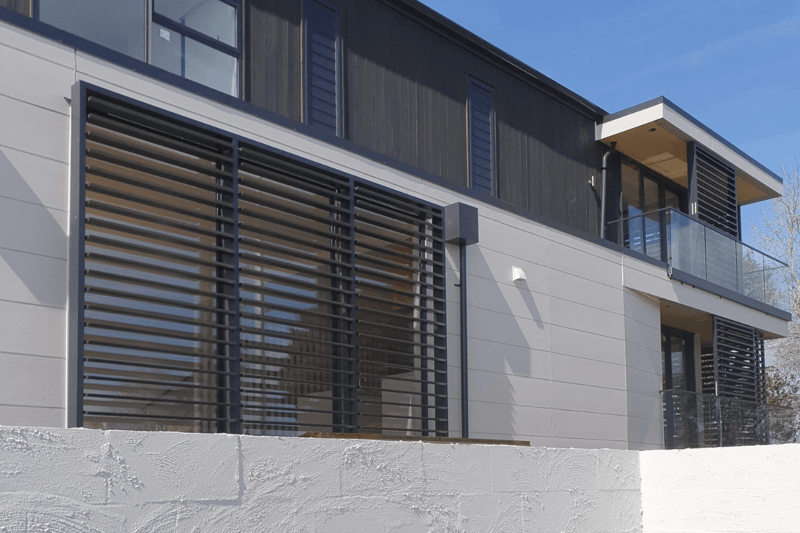
For a smaller, simpler solution, motorised blinds and window shutters are a popular choice. Blinds and shutters add convenient and functional shade control to any living space and can be operated by a motor, remote, or wall-mounted switch.
Blinds and shutters can be custom-fitted to your design specifications and can be adjusted to provide precise levels of light and privacy. They are often made from high-quality materials like aluminium, wood, or vinyl, each of which are durable and long-lasting.
Motorised louvre blades
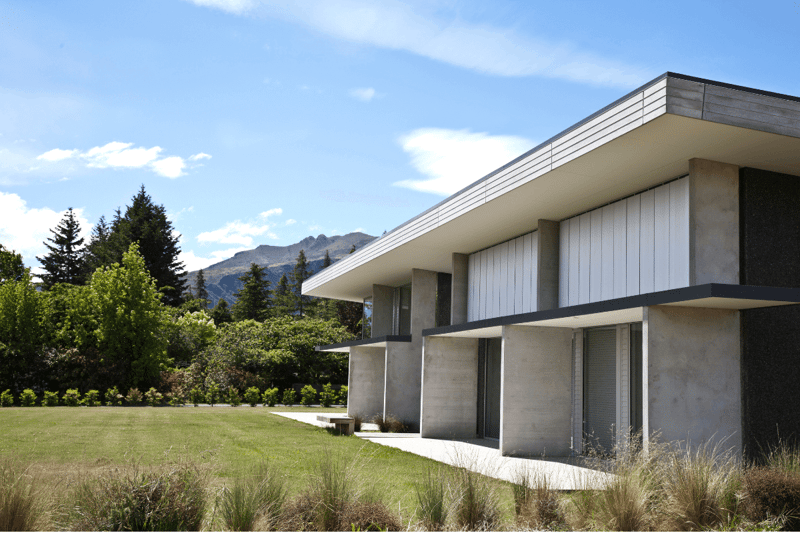
Louvres have gained popularity in architectural design due to their space-saving design and functionality. Usually, the blades are found on exterior windows or in outdoor rooms for added functionality and visual appeal.
Motorised louvre blades allow homeowners to block unwanted sunlight, regulate shade and temperature, and ensure privacy from neighbouring properties. As an architect, you can also incorporate these blades into your designs for their aesthetic value, adding depth and dimension.
Opening louvre roofs
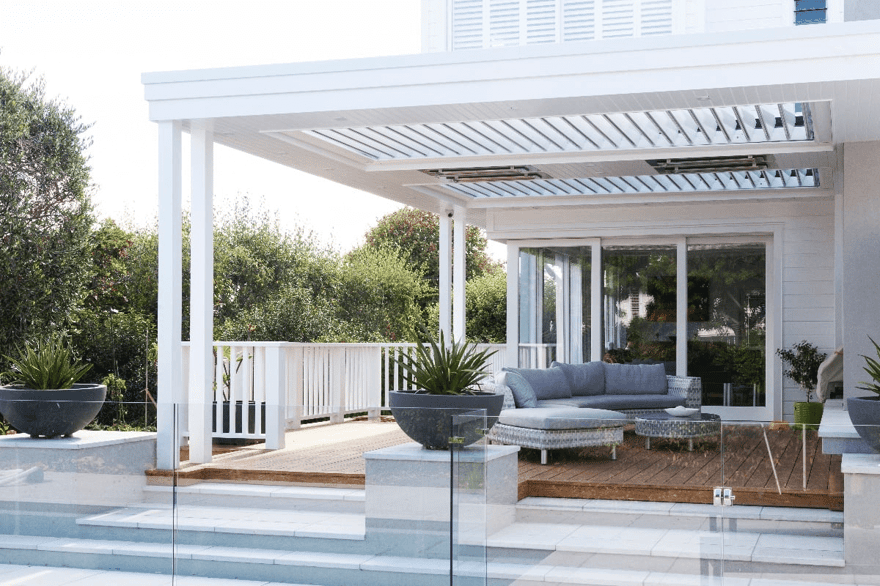
An opening louvre roof is an innovative and convenient solution for outdoor living areas. These structures consist of adjustable louvres that can be opened and closed electronically, providing shade, shelter, and ventilation with ease.
The louvres can be adjusted to let in as much or as little sunlight as the homeowner desires and can also be set to close automatically in response to rain. Motorised louvre roofs are typically made from high-quality materials like aluminium and can be customised to fit any architectural specifications.
Exterior facades: Smart home solutions NZ
As automation gains popularity in various areas of architectural design, the building exterior of your next project should be no exception. Facade automation provides an opportunity to optimise residential homes and new builds for energy efficiency, while also adding depth and movement to the building’s profile.
Whether you're looking for a solution that is purely functional or something that doubles as a design feature, there is a suitable product available. To learn more about the architectural solutions available, contact us or explore our style guide for inspiration from louvre projects all over New Zealand.
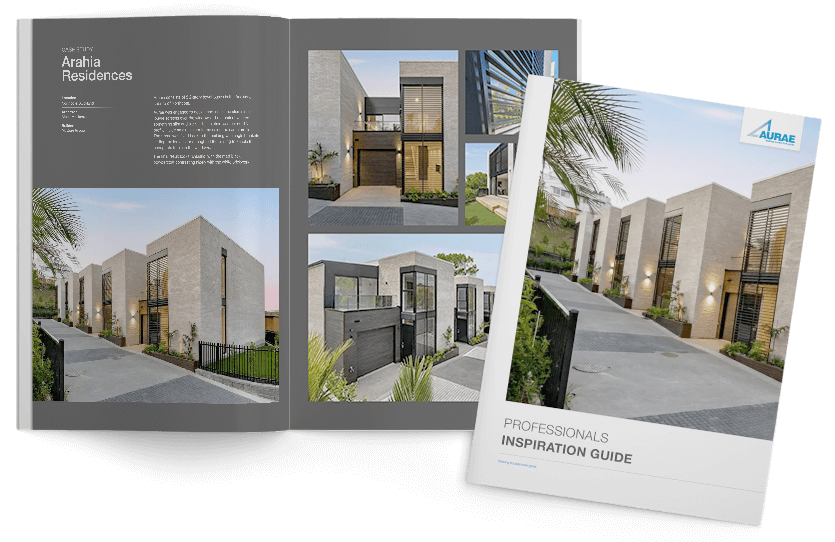
Looking for louvre inspiration for a current or future project? Our inspiration guide is the perfect starting point.
DOWNLOAD HERE


